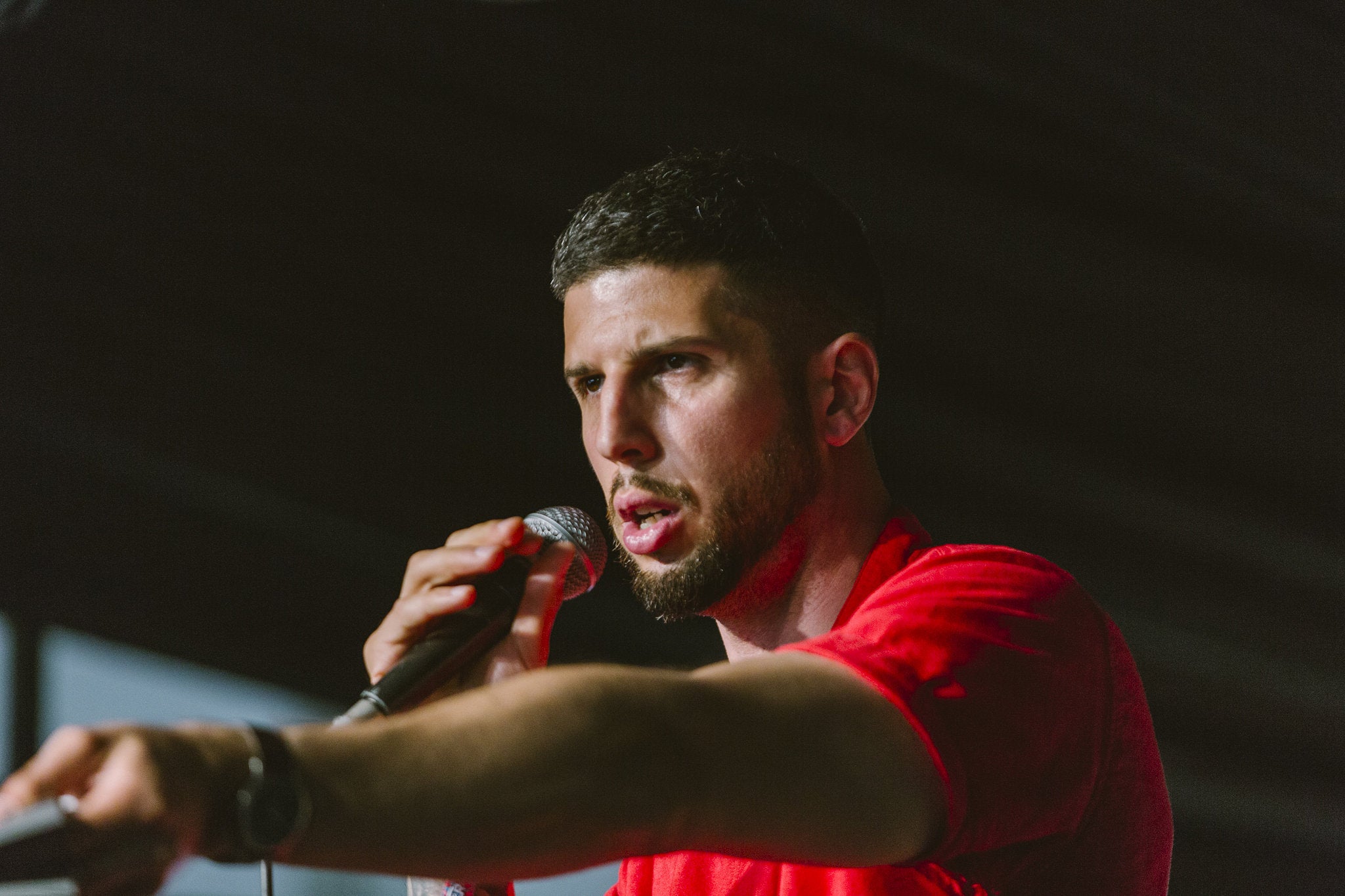Art is always political – so why are we punishing artists who speak out about Gaza?
We should all be worried about Arts Council England’s decision to scrutinise – and punish – creators who incur ‘reputational risk’ with political statements, writes poet Anthony Anaxagorou. To put deliberate restrictions on artists, cultural workers, charities and organisations is a low and fearful act of censorship


It was reported on Tuesday that Arts Council England, the main funding body for the arts and culture sector, had in late January updated its official relationship framework for NPOs (National Portfolio Organisations), to include a warning against making political statements.
That means the potential scrutiny of not just organisations, but of individuals associated with them – artists and creators, in other words.
In making personal statements or political actions, ACE warned that organisations – along with the Arts Council itself – would be put at “reputational risk” and that it could affect funding.
Artists like me, and those I work with, reacted to the news with scepticism and disdain. To us, this feels like a further step towards censoring and curtailing freedom of expression.
The following day, ACE issued a statement aimed at reassuring us all that the policy update was no more than a mere safeguarding measure, as opposed to a sinister or censorious one – yet the language deployed appeared vague and uneven, doing little to dispel the atmosphere of uncertainty.
It begs the question: How would ACE go about assessing individuals who speak out against what is happening in Palestine? What if we call it a “genocide”, because we believe that it is?
What if those of us who use our art to condemn mass killing also sit on the board of an ACE-funded charity or publisher? Which political opinions would fall within the orthodoxies of what ACE deem acceptable?
And will ACE appoint itself as the sole arbiter who goes about investigating individuals who publicly support, say, the rights of Palestinians – and as a result defund an entire organisation? Or do they wait until a right-wing newspaper logs a formal complaint? By default, those who have opposing views would be subject to scrutiny, too. So why are we suddenly hearing about restrictions for those who are openly critical of Israel?
To me, the approach is reminiscent of New Labour’s 2005 Prevent strategy, which failed miserably because at its very core lay assumption, agenda – and, ultimately, prejudice.
How can anyone realistically exercise freedom of expression without having to worry about causing a company “reputational risk”?
If people are being made to self-censor for fear of jeopardising the funding prospects of an entire organisation, where does that leave a sector that remains one of the last bastions where dissent can be voiced, and asymmetrical power can be challenged?
It feels like a poorly thought-out attempt to homogenise and rein in an industry that’s become ever more influential in shaping public opinion through its art and activism, while also being hypercritical of policymakers and the machinations of power.
While the Arts Council has a duty to ensure the safety of all its funded members, it also must ensure that it defends – where necessary – artistic expression, along with the freedom to create.
At a time when many artists, cultural workers and organisations are demanding that our government call for a permanent ceasefire – these policies feel hypocritical and targeted. It would be remiss to not highlight here that when Russia invaded Ukraine in February 2022, ACE expressed complete and unwavering support for all of Ukraine’s cultural sector and affected organisations.
What the policy shift has exposed is how access to public funds may soon be determined by groups being made to quietly acquiesce to the political optics of a financial sponsor – namely, the Conservative government.
Those applying for funding may feel like they’re being coerced into compromising their own political convictions for the need for public subsidies. This would severely impact the sector’s overall make-up, infecting its approach to art production, and will be seen as yet another advancement in trying to neuter and quell dissidents.
Those currently targeted are independent NPOs who have the capacity to support work that disrupts and confronts the status quo – but is that not one of art’s great functions? It’s always been inherently political.
Who has the right and the resources to make it, how it’s rendered, how it’s preserved, how it’s valued, and the impact it has on our interiority is largely determined by the political climate it stems from. To put deliberate restrictions on artists, cultural workers, charities and organisations is not the way of a democracy, but a low and fearful act of trickle-down censorship.
If Picasso had painted Guernica today, and the Paris International Exposition were an NPO, or he sat on the board of an organisation and his work was regarded as being too divisive, too polemical or incendiary, would the entire organisation be liable to lose its funding over “reputational risk”?
Anthony Anaxagorou is a British-born Cypriot poet, fiction writer, essayist, publisher and poetry educator
Join our commenting forum
Join thought-provoking conversations, follow other Independent readers and see their replies
Comments
Bookmark popover
Removed from bookmarks